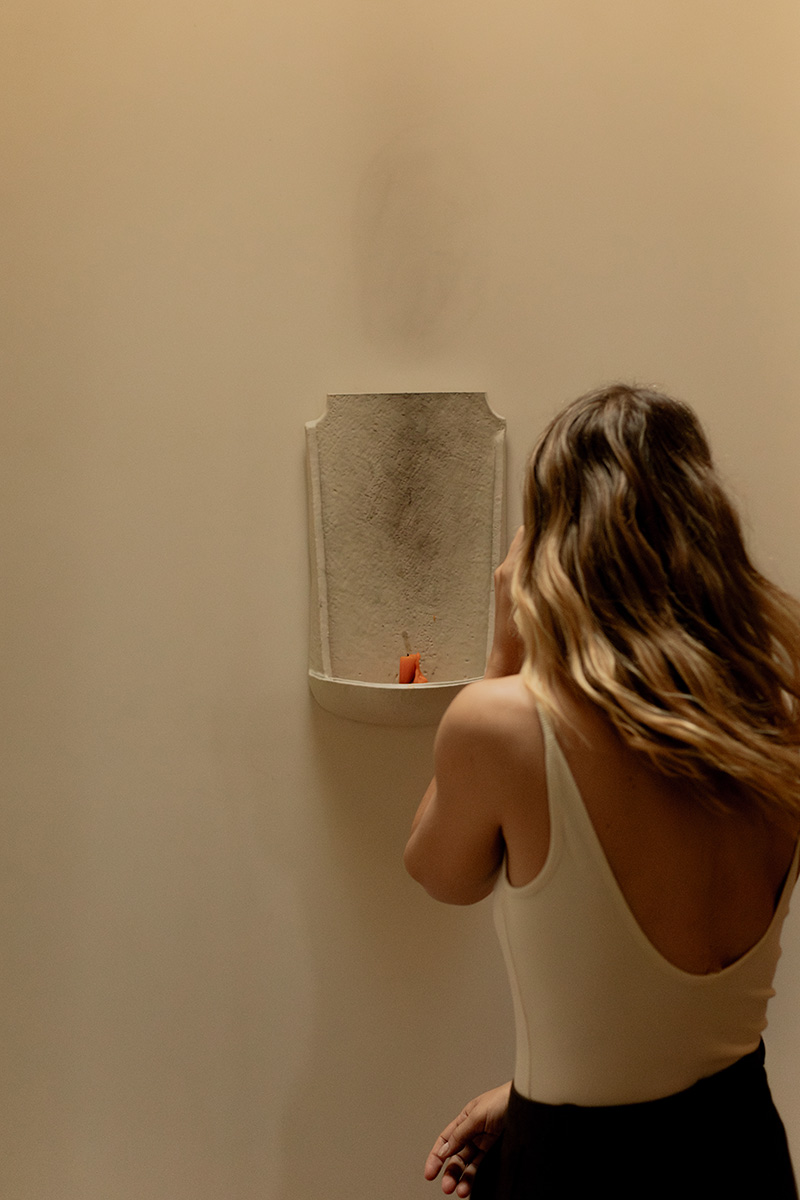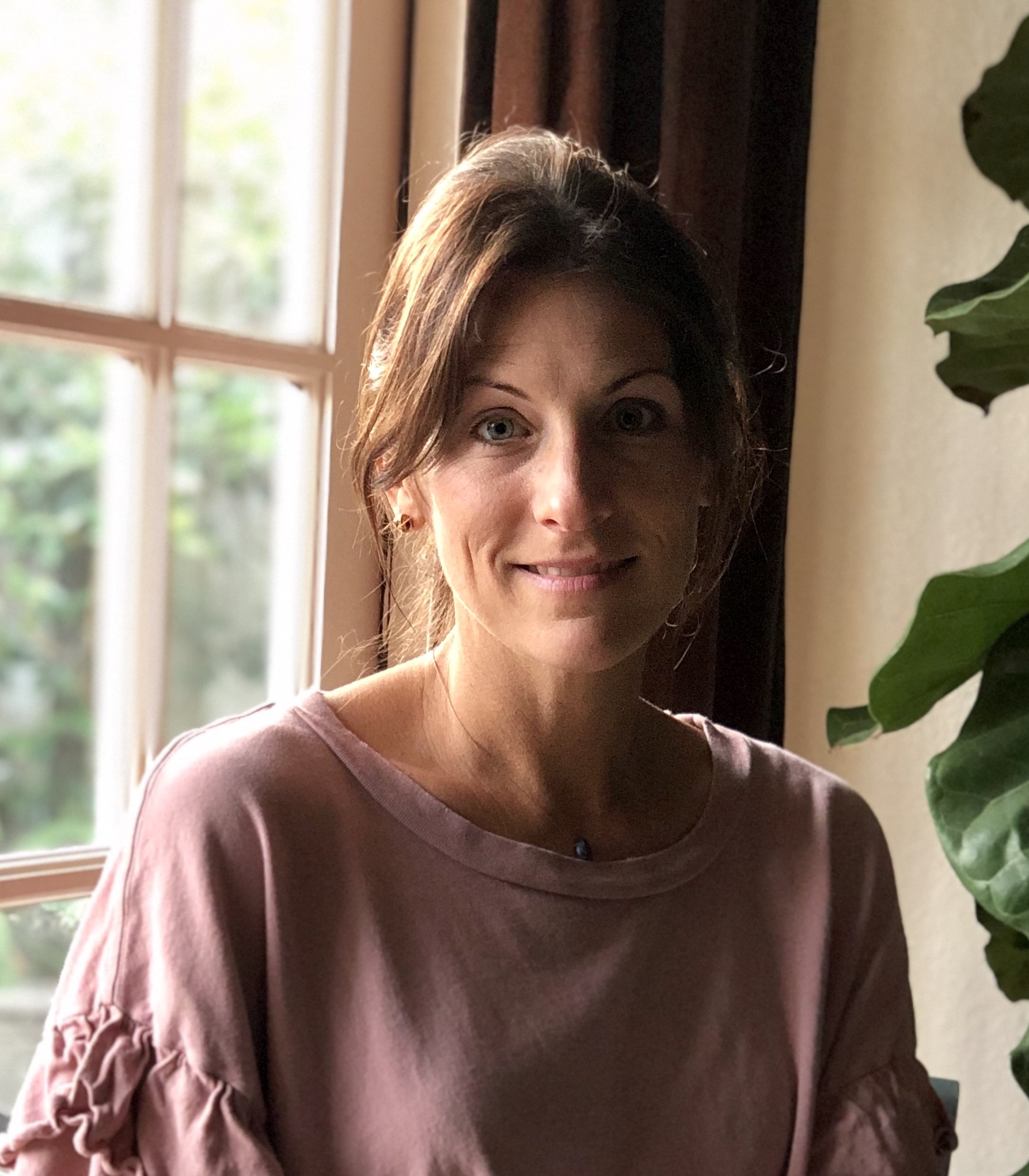
Anticipatory Grief Helped Me Accept My Husband’s Cancer Diagnosis
The first few days after my husband’s Stage 4 cancer diagnosis were a blur. There was shock, confusion, concern, and so many questions. With no idea what was to come, I just sat with the burden of that life-altering news, feeling unprepared mentally or physically to face it as a new reality.
“With no idea what was to come, I just sat with the burden of that life-altering news, feeling unprepared mentally or physically to face it as a new reality.”
As we selectively shared the news with our daughters, our families, and our close friends, I maintained composure. I managed to stay strong and stoic — something I felt was necessary to model for our daughters. In the weeks following, my husband remained positive, continuing to follow doctors’ orders and prepare for the literal fight of his life. Meanwhile, I drove our daughters to and from school as if life hadn’t changed much despite Dad’s new chemo routine and the monumental weight that was now lying upon our close family unit.
And then, one night, a few weeks following his diagnosis, it hit me. As I lay quiet in bed, visions of my husband’s course of illness and his death flooded my mind. I felt a sense of separation from him despite his clear presence right next to me in bed. Tears streamed as I pictured birthdays, holidays, and graduations without him. I tried not to make noise as I cried about the possibility that my husband may not be present to walk our daughters down the aisle or — if we were lucky enough to have them — hold our future grandchildren. I even tried to picture finding love or partnership again in his absence. This continued for weeks, most often in the quiet moments — in the shower, on a run or walk, in the morning when I first woke, on solo car rides. As he bravely endured rigorous treatment without a complaint, I found myself feeling weak and grieving the loss of a man who was still very much alive.
“As he bravely endured rigorous treatment without a complaint, I found myself feeling weak and grieving the loss of a man who was still very much alive.”
In an effort to justify my thoughts and feelings, I Googled “grief before death” and found out that what I was experiencing was very normal, almost common for someone in my situation. I was experiencing something known as anticipatory grief.
The concept of “anticipatory grief” was established by Dr. Erich Lindemann, a psychiatrist at Massachusetts General Hospital in the 1940s. While most people consider grief a process that happens after the loss of someone, Lindemann defined anticipatory grief as a response to the threat of death taking place in advance of the loss. In the words of philosopher Rachel Bath, “It is the grieving for an event that has not yet occurred but which will occur.”
Anticipatory grief is common for people whose loved ones have been diagnosed with a life-threatening or debilitating disease, ranging from cancer to Alzheimer’s. Rather than mourning the person after they’ve passed, those experiencing anticipatory grief feel the loss of what we envisioned for our future with loved ones. Just as standard grief takes many forms and follows various timelines, the same rings true of anticipatory grief in that you can become stuck, almost drowning in it, paralyzed from performing even the simplest daily activities. Prolonged anticipatory grief can cause detachment, loneliness, and depression, as well as physical manifestations of illness.
“Rather than mourning the person after they’ve passed, those experiencing anticipatory grief feel the loss of what we envisioned for our future with loved ones.”
Thankfully, my husband’s doctors have never offered us a timeline. They encourage us to ignore statistics and focus on keeping the disease under control, one treatment, one surgery at a time.
But since I’m a journalist, upon his diagnosis, I spent hours researching and often came across the anticipated prognoses. It was hard to read and even harder to imagine. He was (and continues to be) stronger than most, dealing with such an unpredictable and ravenous disease for which he was not even deemed old enough to be screened. And yet, despite what all the scans and blood tests had revealed taking place under the surface, this man, diagnosed with Stage 4 colorectal cancer, remains stubborn, steadfast, and focused on his mission to survive. He is very much alive. But during waves of anticipatory grief, all I feel is the pain of his imminent departure.
“His doctors had not given him an expiration date, and yet my brain was telling me he was already gone.”
In the beginning, I felt overwhelming guilt and frustration with myself for the morbid, disturbing, and untrue thoughts I was having regularly. His doctors had not given him an expiration date, and yet my brain was telling me he was already gone.
At first, my anticipatory grief presented as extreme sadness and some pretty extreme detachment. In fact, I’ve never discussed this directly with him. I always wanted him to stay focused on getting better. But while there was a period where I felt distant from my husband and alone in my grief, it passed, and I ultimately started to feel closer to him and my daughters, wanting to seize all the happy moments I could.
Prior to knowing what it was, my anticipatory grief felt wrong and selfish. Now looking back, I can see that when I allowed myself to open up to it and accept it, I also accepted my husband’s diagnosis. I shifted toward living the life that we now faced, not the one we would be missing out on. And, as someone who likes to prepare for every situation’s potential outcome, I learned that, for me, anticipatory grief is a powerful coping mechanism, where I can experience heightened emotions of loss as I imagine worst-case scenarios but then come out of it feeling more mentally prepared for tough possibilities. It helped to strengthen my mental state and allowed me to exist more in the present.
“I shifted toward living the life that we now faced, not the one we would be missing out on.”
A year and a half into this fight, I still experience anticipatory grief — albeit less frequently, and it comes more in the form of questioning if this one holiday, this one experience, or this one milestone will be the last we are allowed with him. And in truth, we really have no idea. But now, being fully aware of this type of preliminary grief, I am able to acknowledge its purpose and then refocus on reality.
“I avoid getting stuck in negative thoughts by considering my anticipatory grief as more of a visiting friend, not a permanent resident.”
During my bouts of anticipatory grief, I do find that conversations with a few close friends and my parents help me to navigate the hard feelings without guilt or judgment. I now give myself permission just to feel these emotions, no matter how awful and hard they may be to admit.
I also stay focused on self-care, the kind that will keep me healthy as a mother, wife, and caregiver — including eating well, getting good sleep, moving my body, and absorbing regular sunlight and fresh air. I avoid getting stuck in negative thoughts by considering my anticipatory grief as more of a visiting friend, not a permanent resident.
This is not to say that anticipatory grief has made me content with our family’s new trajectory or that it will give me a pass on grieving in the future. I know the actual loss — hopefully in the distant future — will be as heartbreaking and devastating as the day we got the news of his illness.
But for now, my anticipatory grief serves a purpose, and I have learned to embrace it.
Randi Donahue is a Contributing Editor at The Good Trade. She is currently earning an MS in Health Science and Functional & Integrative Nutrition from Northwestern Health Sciences University. She brings over 10 years of research and writing expertise, focusing on making complex health and wellness concepts more accessible to readers. When not writing about health topics, you can find her reviewing the latest outdoor products and wellness tech. Based on Florida’s Gulf Coast, she and her family are passionate about nature and believe the path to a healthy and prosperous life requires authenticity, kindness, and a whole lot of fresh air.




